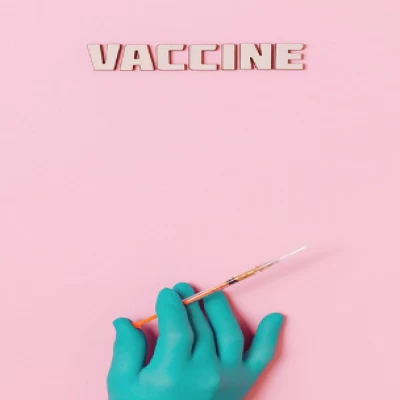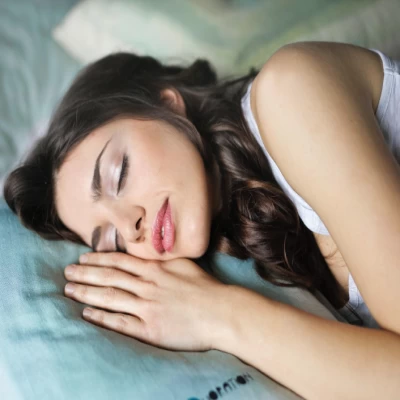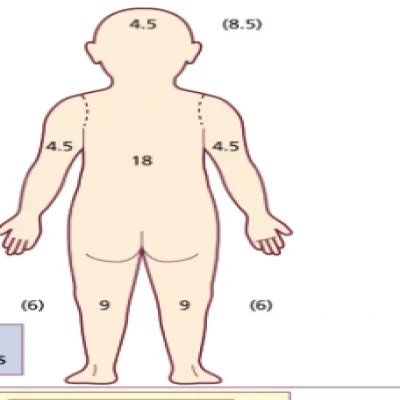مجلات علمية

Varicose eczema is an inflammatory disease of the skin affecting the lower legs due to fluid accumulation.
Affected people above 50 years old and is common in females.
What's varicose eczema?
● It's an inflammatory disease, a kind of eczema, skin disorders, also called stasis dermatitis.
● Occur in people who have varicose veins, due to poor circulation.
● It usually affects the lower legs and sores may happen.
● Can be treated by professional doctors.
● No specific lab tests but there are many confirmatory tests.
● Can last for several years or continue all life.
● It is common in females for ages 50 and older, and studies detect that 20% of people over 70 years old are affected.
What's the cause of stasis dermatitis?
● There is a combination of many causes but the main cause is due to increase in blood pressure in leg veins and other causes as:
1- Congestive heart failure.
2- Traumatic injury.
3- Deep thrombosis of veins.
4- In surgery like total knee arthroplasty, and vein stripping.
5-problems with the circulation of blood back to the heart which is called venous insufficiency ( small veins stop working and it's difficult to push blood upwards against gravity this may lead to leak backward).
● Some people occur this eczema without any obvious reason but there are some factors like :
1-gender as female is more common in them.
2-Obesity as it may lead to increased blood pressure in the legs.
3- Old age as their movement decreases, which may affect blood circulation.
4- Pregnancy like obesity increases blood pressure in your legs.
● Lifestyle factors as :
1- Standing for long periods.
2-Decrease of exercises.
3- Obesity.
Who is affected by Gravitational Eczema?
● It usually occurs in middle-aged or older people.
● It can also occur in younger people in cases of genetic predisposition.
● People who suffer from high blood pressure, phlebitis, deep vein thrombosis, and cellulitis.
What are the symptoms of varicose eczema?
It is like other types of eczema
● Major symptoms affect the legs
1- Ulceration.
2- Skin blisters.
3- irritation and skin itching.
4- Discoloration or darkening of the skin.
5- Scales formation.
6- Pricking needle pains.
7- Swelling of ankles and legs varicose vein.
8- Thickness of leg skin.
9- On lighter skin, it looks red or brown.
10- On dark skin, it looks dark brown, grey, or purple.
11- There may take periods from symptoms till they become more severe.
● It can affect other parts of the body.
Complications of varicose eczema:
-In cases of untreated lead to
● Osteomyelitis.
● Leg ulcers.
● Scarring.
● Fibrosis skin and hard areas.
● Shrinking of the lower part of the leg.
● Severe itching in the skin
● Deeply pigmented skin.
-More dangerous complications
● Bacterial skin infection as and abscesses., Due to cracks and poor skin conditions.
● Cellulitis dangerous infection that affects deep body tissue which can develop as a complication and affect the leg.
What's the diagnosis of varicose eczema?
● It involves a medical history and physical examination.
● It includes common tests and procedures like doppler ultrasound to check the blood flow in the legs.
● As you should see a doctor for symptoms of dermatitis eczema.
● Doctors make a diagnosis simply by looking at the skin and ask you questions to detect the blood flow in the veins of your legs.
● The doctor asks you about any disease history like enlarged varicose veins, blood clots in the veins (deep vein thrombosis), delay or damaged skin area which takes many weeks(ulcers), injury or surgery to your legs, and deep layer infection of legs (cellulitis).
● He tries to check the pulse in your legs.
● He does an ankle-brachial pressure index test ( test to compare blood pressure reading between ankles and upper arm) to detect if compression stockings are suitable for you or not.
● Tests for detecting the cause of poor blood circulation :
1- Heart function test.
2- Blood test.
3-Ultrasound.
4- In some cases, allergy tests are necessary because people with stasis dermatitis always have skin allergies.
What's the treatment of varicose eczema?
Treatment of it includes medication and procedure, self-care, and nutrition habits torrent underlying conditions.
● Medication
1- it includes antibiotics in case of bacterial infection.
2-Emollients apply them on the skin to prevent dryness of skin
3- Topical corticosteroids are ointments or creams applied on the skin to treat eczema and decrease symptoms.
● Procedures
1-in some cases there is varicose eczema. It needs surgery to repair damaged veins.
● Self-care
1-keep skin clean.
2-keep feet above the level of the heart while sleeping.
3-Avoid standing for a long time.
4- Wearing compression stockings ( they are special stockings for eczema designed to wear them every day, squeeze your legs at the foot and ankle then become looser up your legs, it helps in improving your circulation).
5-Applying barrier cream or petroleum jelly.
● Nutrition
-people who have varicose eczema should eat:
1- Food high in zinc like beef chuck, yogurt, and oysters.
2- Citrus fruits which are rich in diosmin.
3- Grape seeds and peanut skins which are rich in pycnogenol.
-And they should avoid :
1-High fat food.
2- Salt and food contain sodium.
3- consumption of alcohol.
● If this treatment is not affected you should see a specialist to detect if these symptoms are due to dermatitis eczema or contact dermatitis or other causes.
Where should I go when I discover varicose eczema?
-You should go to a specialist to consult you in cases of poor blood flow to your legs, symptoms don't disappear despite treatment, contact dermatitis.
-Specialist as
● Dermatologist: specialist in the skin and its diseases.
● Vascular surgeon: he is a specialist in vascular system disease and he performs surgical reconstruction and minimally invasive catheter procedures.
Prevention of varicose eczema:
● Clinical diagnosis and suitable medication of conditions like congestive heart failure.
● Exercise.





